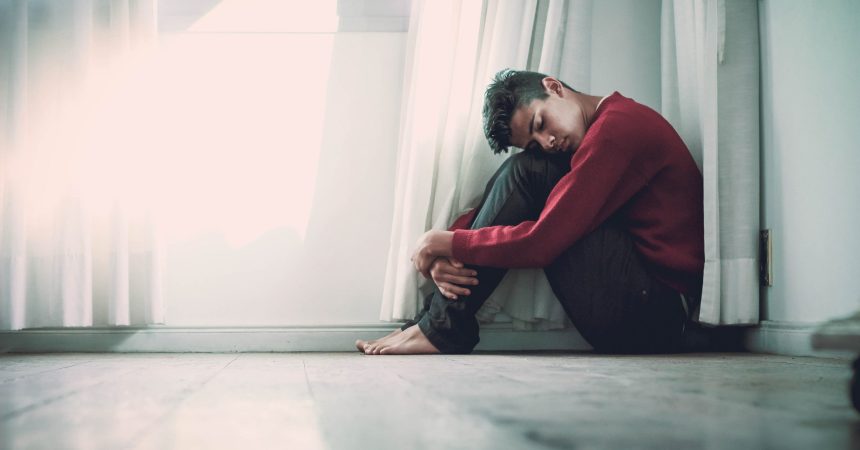It is entirely normal to feel nervous or slightly anxious in some social situations such as:
- Going on a date for the first time
- Giving a presentation
- Performing a new skill
- Meeting a new group of friends
- Meeting a partners family
- Traveling to a job interview or new place
- New school, college, university
However, when it comes to social anxiety, otherwise known as social phobia, everyday situations and interactions should not cause any form of anxiety, embarrassment, or self-consciousness. You should not be fearing that you will be negatively scrutinized or judged by your peers for simply carrying out your daily activities.
Social anxiety disorders can begin to disrupt your daily life completely. The fear and anxiety you feel when you wake up cause you to avoid going outside or engaging in any form of social activity. Consequently, every time you avoid social interactions, your disorder will become ever so slightly worse.
The levels of social anxiety
It has been stated that an average of fifteen million, or seven percent, of American adults, have a social anxiety disorder, with more than 75% of people experiencing their first symptoms during their childhood or early teenage years. Individuals with a social anxiety disorder are also at an increased risk for substance use disorder and major depressive disorder.
Severe social anxiety is classed as a chronic mental health condition; if diagnosed, you will be assessed to see if undergoing psychotherapy, or cognitive behavior therapy will be beneficial. These therapies will encourage you to learn various coping skills when you find yourself in a situation that could be triggering. Furthermore, you can take medication which will help improve your ability to interact with other people and gain confidence every time you push yourself that slight out of your comfort zone.
Everyone at some point will experience anxiety within their lifetime. The level at which a person can encounter such feelings can be influenced by:
- Personality
- Life experiences
- Gender
- Coping strategies
Having a social anxiety disorder (SAD) significantly increases the chance of you being diagnosed with another mental health disorder, consequently receiving medical help becomes a lot more complex. The majority of conditions related to social anxiety disorder include:
Avoidant Personality disorder
If you have an avoidant personality disorder (APD), you will experience the same symptoms as those with a social anxiety disorder (SAD). However, your symptoms will be slightly broader and generally more severe.
One of the vital defining features of APD (avoidant personality disorder) that tends to not be as present in social anxiety disorders is a lack of trust in the motives of others. Individuals who have avoidant personality disorder tend not to trust anyone, no matter how long a person has been in their lives. Individuals with social anxiety disorders will often believe that others are constantly judging their performance.
Consequently, when an individual is diagnosed with both forms of anxiety, this leaves the individual in every confused mental paralysis. They cannot figure out if they can trust an individual or not, which can trigger other mental disorders such as a panic attack.
Depression
Medical professionals have established a significant relationship between depression and social anxiety disorders. If an individual has been diagnosed with a social anxiety disorder, there is an increased likelihood of developing depression later on in life.
This is often somewhat confusing for medical professionals because individuals will seek help for their depression, which most likely would have only been short-lived, but not for their social anxiety disorder, which they would have generally lived with for years.
Schizophrenia
So far, schizophrenia and its relationship with social anxiety have not yet been studied quite as much as depression. However, there is established evidence of the two mental health disorders. Individuals diagnosed with schizophrenia risk developing social anxiety and further down the line in their lives.
If you are diagnosed with schizophrenia, you will be heavily monitored to reduce the risk of developing either SADs or other mental health disorders.
Generalized anxiety disorder
An individual suffering from generalized anxiety disorders (GAD) will find themselves constantly worrying about their life in general, situations and event that are entirely out of their control rather than focusing solely on the social aspect of their lives.
If you have been diagnosed with general anxiety disorder, your symptoms of social anxiety will be significantly more severe as your mind has re-wired itself to constant worry about the majority of changes or unexpected elements in life.
If you are diagnosed with generalized anxiety disorder, there is a high probability that you already have a certain level of social anxiety disorder. However, due to your GAD symptoms being so severe, it becomes hard to distinguish the difference.
Alcoholism
Social anxiety disorders and alcoholism have a unique connection; you are on the higher end of developing a substance addiction if you suffer from SAD. Very often, alcohol takes the edge off with people who have social anxiety disorders, allowing them to feel slightly more at ease when they are in situations that they feel uncomfortable in.
If you are an individual dealing with social anxiety disorder and alcoholism, your treatment must be bespoke to your specific situation to ensure both issues are addressed.
Panic disorders
It is common for individuals to think their social anxiety disorder is a panic disorder as they are marked with similar symptoms such as:
- Nervousness
- Trembling
- Shaking
- Persistent feat
- Fast heartbeat
- Sweating
- shortness of breath
- Intense fear
Panic disorders are common in psychiatric disorders, especially with social anxiety disorders. It is common for individuals with a social disorder to trigger a panic disorder through their fears of being negivately judged or being placed into a social situation they are not comfortable with.
Treating social anxiety disorders
Treatment entirely depends on how much your social anxiety disorder affects your ability to function daily. Standard therapy for social anxiety disorders can include psychotherapy called cognitive behavior therapy (CBT), talk therapy and psychological counseling, medication, or both.
Cognitive behavior therapy is beneficial for treating individuals with social anxiety disorders. It teaches you various ways of thinking, behaving, and reacting to situations to help you feel less fearful and anxious. It can also help you learn and practice social skills.
Finding help
If you have been diagnosed with a social anxiety disorder or other mental health disorder such as alcoholism, you will need to have a bespoke plan to treat both mental health disorders. Take the first step to recovery and get the help you need. Our medical professionals are here to assist you with your dual diagnosis conditions.






